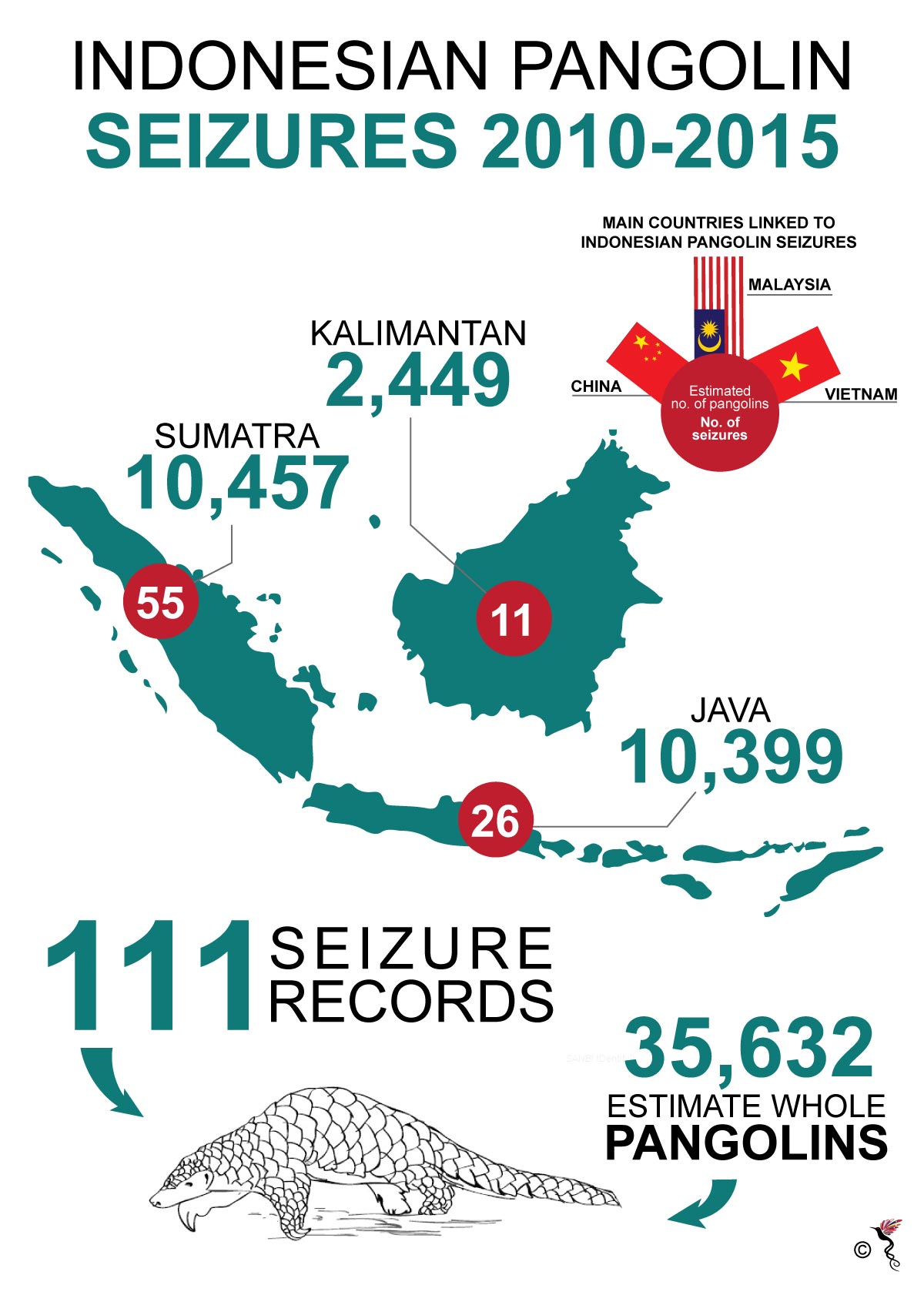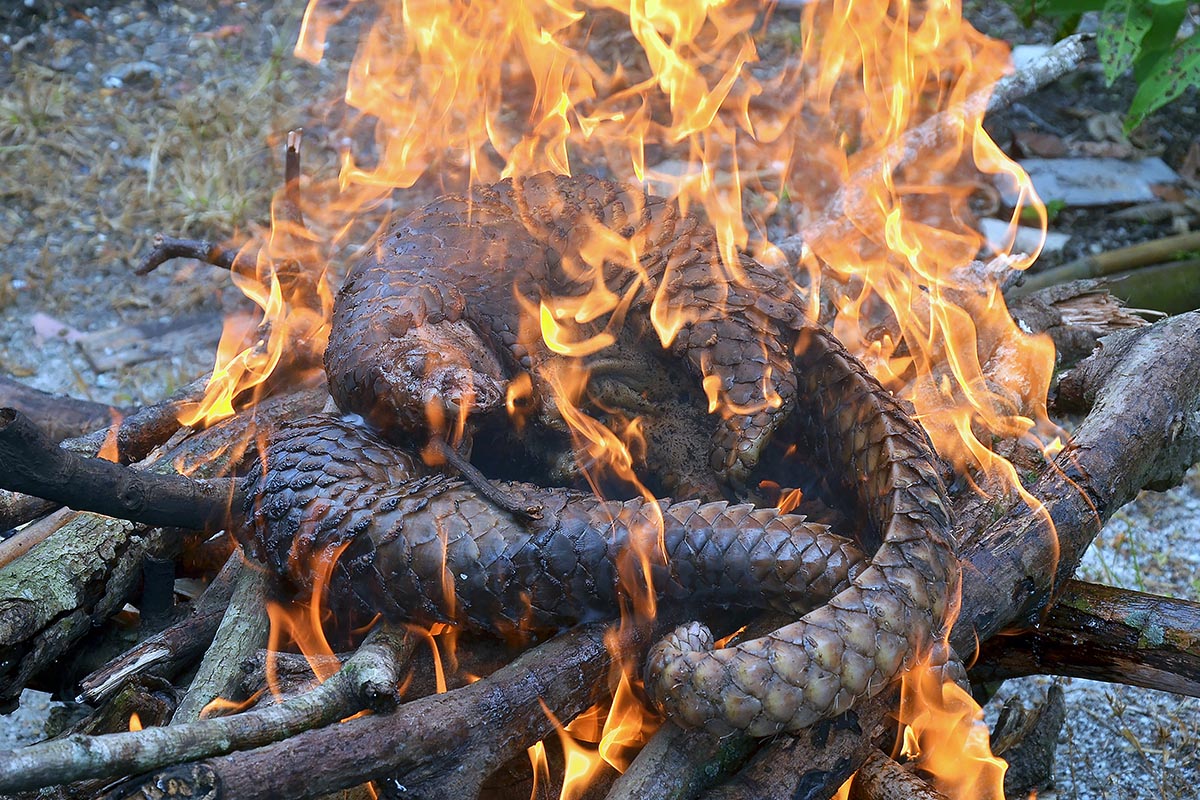Indonesia is undoubtedly one of the most biodiverse countries in the world, let alone in the Southeast Asia region. Although there have been management efforts to conserve this natural richness, the country has long been recognised as a significant illegal wildlife trade hub. From tigers to rhinos, these animals are going through the unfortunate fate of extinction because of this one reason.
Now, Sunda pangolins (Manis javanica) in Indonesia are at risk of extinction because of an illicit trade that sees thousands of the critically endangered animals trafficked each year, a study showed Thursday.
The archipelagic nation, one of the last strongholds of the Sunda Pangolin, has already lost up to 10,000 pangolins a year to illegal trade despite significant enforcement success.
Report findings
According to the latest study by the wildlife trade monitoring network, TRAFFIC, ‘SCALY NEXUS: Mapping Indonesian pangolin seizures (2010–2015)’, researchers found an equivalent of 35,632 pangolins had been seized in 111 enforcement cases over the six-year period from 2010 to 2015.
Throughout the study period, the volume of pangolins and parts seized varied greatly, ranging from 2,436 to 10,857 pangolins per year.
The report also showed that Sumatra was identified as a hotspot and served as a key link to smugglers in Malaysia and Singapore, where the animals were most often sent on to China and Vietnam.
Domestic seizures accounted for 83% of the 111 cases studied. The authorities also identified or arrested a minimum of 127 suspects linked to those cases.
“This is a reminder that Indonesia’s wildlife is being drained on an industrial scale to feed the global illegal trade,” said Kanitha Krishnasamy, Acting Regional Director for TRAFFIC in Southeast Asia and a co-author of the report.
“While the relatively high number of seizures and arrests speaks to the Indonesian government’s commitment in tackling the problem, it also highlights the relentless poaching pressure in one of the most biodiverse countries in the world,” she added.

Source: SCALY NEXUS: Mapping Indonesian pangolin seizures (2010–2015).
Laws and action in Indonesia
The decline in pangolin population is expected to continue unless immediate measures to counter this problem are put into place.
All trade regarding the Sunda Pangolin specimens is prohibited under the law in Indonesia which is home only to this species of pangolin.
The high pressure on Sunda Pangolins was evident in Indonesia’s placement among the top 10 countries involved in international illegal pangolin trade last week with the release of a separate TRAFFIC study on global pangolin seizures during the period 2010–2015.
The massive seizures have continued outside this study period, with at least 21 seizures in Indonesia since 2016, including a 2.5 tonne seizure of pangolin meat in October 2016.
According to AFP, Bambang Dahono Aji, the conservation director at Indonesia's Environment Ministry said, "Don't just blame Indonesia. It takes two to tango," told AFP.
"We are huge archipelagic nation with limited resources to monitor all the sea routes," he added.
The study advocated for increased monitoring and investigation, as well as a stronger multi-agency co-operation.
Apart from that, the report also suggested “inducing behaviour change in consumption countries, so that the demand for pangolin products can be decreased.”
Additional reporting by AFP.
Recommended stories:
Philippine peso seen as Asia's laggard for 2018 as deficit grows
Oil holds gains near two-week high after US stockpiles tumble
Thai airport misery may last years as Chinese overwhelm upgrades
